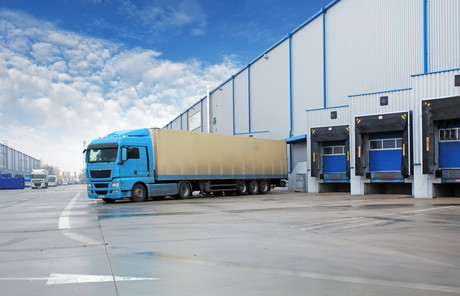Intralogistics: the start of the road to the smart supply chain

Intralogistics, like logistics, is about the handling and flow of goods and materials. But with intralogistics, this takes place not on the roads, but instead within a company site.
The processes include the packaging of goods in crates, wraparounds or baskets, sorting them onto pallets for the individual orders and then dispatching them. And also, the raw materials or new glass bottles have to be brought from the stores to the point of use.
Over the years this in-company flow of goods has changed from being a necessary evil into an important factor in the creation of added value in a company. Because only companies that can deliver the product fast and with flexibility, and without tying up or using capital unnecessarily, will win out against the competition.
Ordered today, delivered tomorrow
In many applications even this is no longer enough. ‘Same day delivery’ is now almost a must, especially in online food retail. To achieve this, delivery chains have to be adaptable, because the markets themselves are changing all the time. Also, order quantities are getting ever smaller with batch size 1 becoming a serious goal. For beverage and food manufacturers this means the number of different packagings will continue to rise and so, too, will the need to package, palletise and transport the customer-demanded variety of products more efficiently.
Packaging and labelling in logistics
Shifting packaging and labelling from production into logistics is one way manufacturers can meet their customer demands for variety. Filled product can be efficiently put into standard crates and moved to the logistics centre. Here, a compact highly flexible repackaging system can repackage product as required for transport or final sale.
The advantages of this solution include: optimised transport routes, greater efficiency and reduced handling processes in the bottling hall, improved planning security thanks to demand-oriented repackaging with the latest expiry date and no layer of dust on the packaging.
Labelling could also be a job for logistics. In this case the repackaging system takes on the task of unpacking the bottles and then places, for example, the just-in-time labelled bottles destined for the export market into the dispatcher’s packaging.
Industry 4.0 is bringing new impetus
The beverage world is increasing its interest in automated systems for intralogistics and the level of investment is growing.
Some of the Industry 4.0 ideas have long been a reality in intralogistics: transport systems that organise their in-company routes autonomously and palletising robots that identify empty slots in real time and fill them up. These are just two examples of intralogistics solutions that, thanks to innovative IT, can become internal ‘full-service providers’ — and organise their operations autonomously.
The ‘Internet of Things’ as the missing link
Facilitated by the Internet of Things, the ‘smart supply chain’ will integrate information from raw material through to the final customer. Already 20 billion items across the globe have their own IP address and are fitted with a chip or sensor and connected to the internet. These items can thus be localised and identified.
They can also interact autonomously with each other — for example, when informed via a weather app that it will be a very hot night, the fridge independently orders beer and meat for the barbecue with the production and delivery of this order organised and processed autonomously.
This vision is not as far off as it seems. A few months ago in the US, the first self-driving truck delivered 2000 cases of Budweiser beer a distance of 120 miles. True, this is an example of external logistics, and not intralogistics.
You can find out more about the current trends and future developments in intralogistics at drinktec 2017. The “world’s leading trade fair for the beverage and liquid food industry” takes place from 11–15 September 2017 in Munich.
Irish drinks manufacturer takes its supply chain to the next level
A stainless steel vertical conveyor system has been incorporated into the final packaging process...
Voice technology used to transform cold storage operations
Dematic has implemented its Voice solution with gamified workflow features at two Australian...
Rock lobster exporter improves supply chain efficiency
Transport technology provider Microlise partners with rock lobster exporter in Western Australia...











